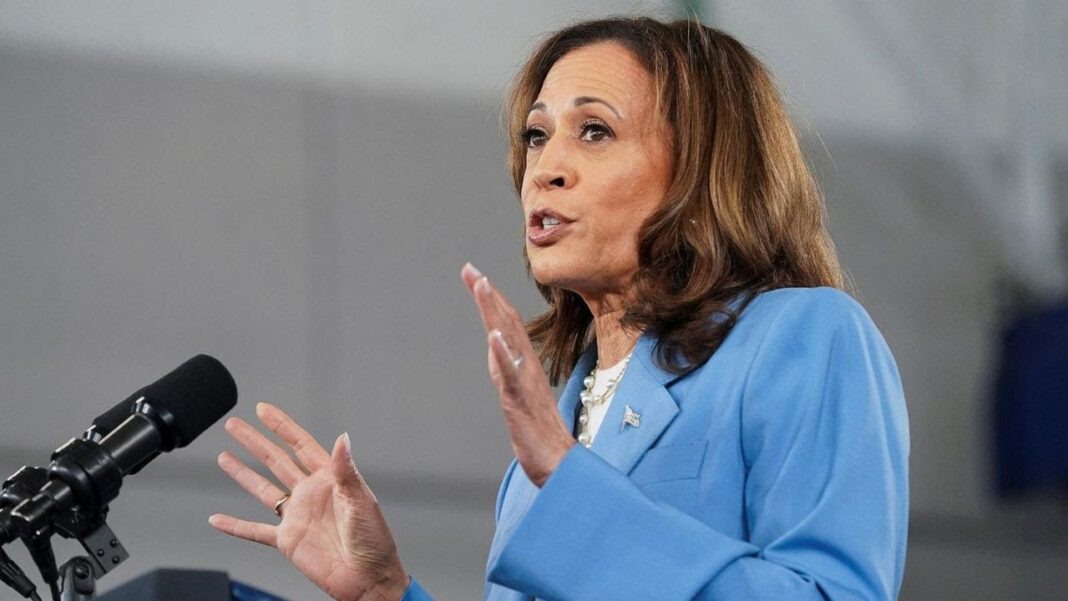A publication authored by progressives, which centers on notable progressive figures, offered a pointed critique of Vice President Kamala Harris during a period of speculation regarding her possible replacement as Joe Biden’s vice president. The book highlighted the concerns of White House aides regarding Harris’s difficulty in presenting a coherent political agenda and her significant dependence on personal charisma.
As Harris now finds herself in a competitive presidential race against former President Donald Trump, this book is being revisited eight months after its original publication. In the summer of 2023, numerous Democratic Party leaders, including California Governor Gavin Newsom, were actively demonstrating their leadership capabilities amid increasing demands for Joe Biden to step down. As that moment passed, the focus turned to Harris, with leftist critics examining her historically low approval ratings, as reported by the Daily Caller.
This context led to the release of “The Truce: Progressives, Centrists, and the Future of the Democratic Party” in January. By that time, the left had sufficiently contemplated the possibility of replacing Harris, and the book arguably equipped them with substantial arguments to support that position.
“It was rotten from the start,” a top aide from her 2020 campaign noted. “A lot of us, at least folks that I was friends with on the campaign, all realized that: ‘Yeah, this person should not be president of the United States.’”
The publication, authored by Hunter Walker and Luppe B. Luppen, was released prior to Harris being regarded as the likely successor for the Democratic presidential nomination, a position attributed to President Joe Biden.
“Kamala is not ready for prime time,” a senior White House staffer told the authors. “She ain’t made for this.”
The text also includes critical comments from individuals involved in her 2020 campaign, portraying Harris as an uninspiring and ineffective leader lacking a definitive political vision or governing strategy. Several staff members recounted disputes arising from tensions between Harris’s family and the leading consulting firm she had engaged for guidance.
Staff members reported considerable dysfunction stemming from the strained dynamic between Harris’s sister Maya, who led the campaign, and Juan Rodriguez of Bearstars Strategies, who acted as the campaign manager. The divide between Rodriguez and Maya Harris became so pronounced that they were compelled to operate in different sections of the campaign headquarters and conduct separate meetings with the staff.
“It was the most awkward day of my life,” a senior staffer told the authors. “People were literally having a thirty-minute audit meeting with Juan about how the campaign was going and then they were walking across the hall into the same meeting with Maya … I remember Juan popping into my office to find out how the meeting with Maya went.”
The issues plaguing the campaign extended beyond familial relationships. According to reports from staff members, the misallocation of funds was a persistent problem, as highlighted by the Caller.
“She cared less about how much money I was raising for her and more about what I was doing to create a good inclusive workspace,” a consultant told the authors.
In December 2019, when Harris exited the primary race, she cited insufficient funding as the main factor influencing her choice. The authors characterized the financial management challenges as indicative of a larger “toxic climate” pervading the campaign. In November 2019, the state operations manager, Kelly Mehlenbacher, resigned, and her resignation letter, which was subsequently leaked to The New York Times, reflected this perspective.
Kelly Mehlenbacher: "This is my third presidential campaign and I have never seen an organization treat its staff so poorly… With less than 90 days until Iowa we still do not have a real plan to win (NYT)"
— Eddie Zipperer (@EddieZipperer) August 25, 2024






